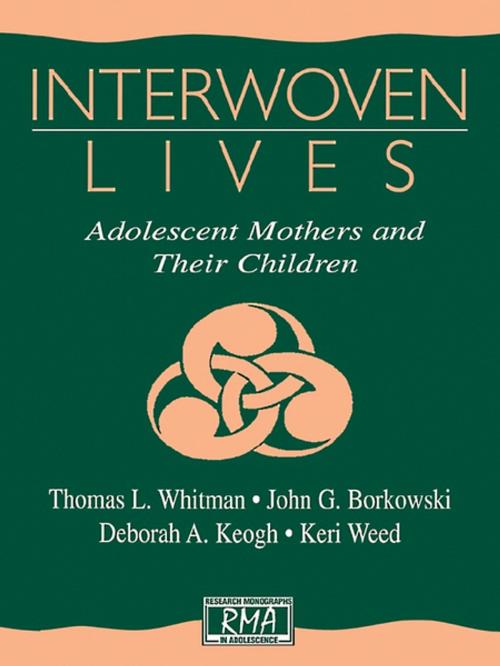Interwoven Lives
Adolescent Mothers and Their Children
Nonfiction, Health & Well Being, Psychology, Child & Adolescent, Adolescent Psychology| Author: | Thomas L. Whitman, John G. Borkowski, Deborah A. Keogh, Keri Weed | ISBN: | 9781135673130 |
| Publisher: | Taylor and Francis | Publication: | March 1, 2001 |
| Imprint: | Psychology Press | Language: | English |
| Author: | Thomas L. Whitman, John G. Borkowski, Deborah A. Keogh, Keri Weed |
| ISBN: | 9781135673130 |
| Publisher: | Taylor and Francis |
| Publication: | March 1, 2001 |
| Imprint: | Psychology Press |
| Language: | English |
Despite a growing body of scholarship on the phenomenon of adolescent parenting, minimal attention has been given to investigating systematic changes in adolescent mothers' and their children's psychological functioning over time. This book reports on a longitudinal study conducted to examine the social and psychological consequences of teen parenting for both mothers and their children. Qualitative and quantitative analyses are used to explain why some mothers and children fare better than others, showing that the lives and developmental trajectories of adolescent mothers and children are inextricably interwoven and closely linked to the social contexts within which they live. The book closes with social policy implications of the research including recommendations for intervention programs and policies to help adolescent parents and their children achieve developmental success and find happiness.
Despite a growing body of scholarship on the phenomenon of adolescent parenting, minimal attention has been given to investigating systematic changes in adolescent mothers' and their children's psychological functioning over time. This book reports on a longitudinal study conducted to examine the social and psychological consequences of teen parenting for both mothers and their children. Qualitative and quantitative analyses are used to explain why some mothers and children fare better than others, showing that the lives and developmental trajectories of adolescent mothers and children are inextricably interwoven and closely linked to the social contexts within which they live. The book closes with social policy implications of the research including recommendations for intervention programs and policies to help adolescent parents and their children achieve developmental success and find happiness.















